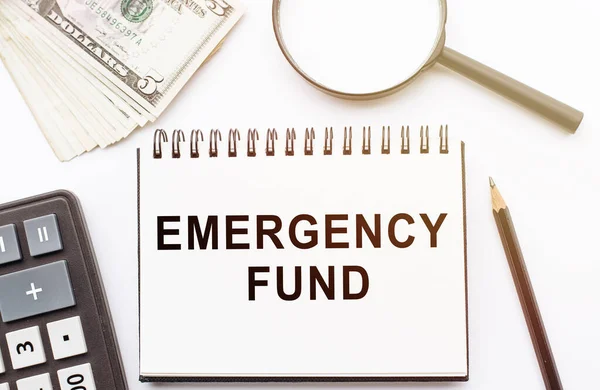Why Do You Need an Emergency Fund.?, How much money should be in an emergency fund?, Setting Up Separate Accounts, When to Use Your Emergency Fund,
In today’s unpredictable world, having a robust financial safety net is not just a suggestion, it’s a necessity. An emergency fund is a fundamental component of financial planning that can provide you with peace of mind and stability during unexpected events. Whether it’s a sudden medical expense, job loss, or a major car repair, having an emergency fund can mean the difference between staying afloat and sinking into financial turmoil. In the upcoming sections, we will explore the significance of having an emergency fund, the process of establishing it, and the reasons behind its crucial role in shaping your overall financial strategy.
Introduction

Why is Financial Preparedness Crucial?
Life is full of unexpected twists and turns. Just as we buckle our seatbelts to protect ourselves while driving, an emergency fund acts as a financial seatbelt, safeguarding us from unforeseen financial disasters. In a world where job security is uncertain, economies can fluctuate, and accidents happen, having a safety net can provide unparalleled peace of mind.
What is an Emergency Fund?
Defining the Basics
An emergency fund refers to a specific amount of money that you reserve for the purpose of addressing unexpected expenses. It serves as a buffer between you and unexpected financial challenges, such as medical emergencies, urgent home repairs, or sudden unemployment. Unlike long-term savings or investments, an emergency fund is easily accessible and provides immediate financial relief when you need it the most.
The Role of Emergency Funds in Risk Management
Consider emergency funds as a crucial component of your risk management strategy. They act as a hedge against life’s uncertainties, offering you the ability to navigate difficulties without resorting to high-interest loans or derailing your long-term financial plans.
The Significance of Building an Emergency Fund
Safeguarding Against Life’s Curveballs
Life has a way of throwing curveballs when least expected. Your reliable car might suddenly break down, your pet could need urgent medical care, or you might face a sudden job loss. During such circumstances, possessing an emergency fund can truly act as a financial lifesaver. It prevents you from derailing your budget, going into debt, or making hasty financial decisions.
Reducing Reliance on Debt
Without an emergency fund, many individuals turn to credit cards or loans to cover unexpected expenses.. This reliance on debt can lead to a cycle of borrowing, high-interest payments, and mounting financial stress. An emergency fund breaks this cycle, allowing you to address emergencies without the burden of debt.
How Much Should You Save?

Calculating Your Ideal Emergency Fund
Calculating the optimal sum for your emergency fund hinges on various factors, encompassing your monthly expenditures, family size, and job security. A widely suggested guideline suggests stowing away an amount equivalent to three to six months’ worth of living expenses. However, this can vary based on your individual circumstances.
Factors to Consider for a Realistic Goal
Assess your personal situation and financial commitments. Do you have dependents? Are you self-employed? Consider your job security, health, and any ongoing financial responsibilities. A larger emergency fund may be necessary if you have more variables at play.
Creating a Successful Emergency Fund Strategy
Setting Up Separate Accounts
To avoid dipping into your emergency fund for non-urgent matters, it’s wise to create a separate account. This distinct account reinforces the purpose of the fund and reduces the temptation to use it for non-emergencies.
Automating Your Savings
Make building your emergency fund seamless by automating regular contributions. Treat your emergency fund as a monthly bill – an essential expense that ensures your financial security.
Adjusting as Your Life Evolves
As life changes, so do your financial needs. Regularly assess and adjust your emergency fund contributions. Factors such as a new job, additional dependents, or increased expenses should prompt a review of your fund’s adequacy.
Where to Keep Your Emergency Fund
High-Yield Savings Accounts
Opt for a high-yield savings account to store your emergency fund. These accounts offer competitive interest rates, ensuring that your fund grows over time.
Money Market Accounts
Similar to high-yield savings accounts, money market accounts provide liquidity and a modest interest rate.
Conduct thorough research and make detailed comparisons among various options to identify the most suitable choice that aligns with your specific needs.
Avoiding High-Risk Investments
While it’s important for your emergency fund to grow, it should not be subjected to high-risk investments. Focus on stability and accessibility rather than chasing high returns.
When to Use Your Emergency Fund
Distinguishing Between Needs and Wants
Before tapping into your emergency fund, evaluate whether the situation truly constitutes an emergency. Distinguish between essential needs, such as medical expenses, and non-essential wants.
Replenishing and Rebuilding
After using your emergency fund, prioritize replenishing it as soon as possible. Aim to restore it to its recommended level before diverting funds to other goals.
Common Emergency Fund Mistakes to Avoid
Procrastination and Excuses
Procrastination can be your emergency fund’s worst enemy. Waiting for the “perfect” time to start can leave you vulnerable when emergencies arise.
Tapping into the Fund for Non-Emergencies
Resist the urge to dip into your emergency fund for non-urgent purchases or vacations. Preserve it for its intended purpose: unforeseen financial emergencies.
Building Financial Resilience Beyond the Emergency Fund
Exploring Insurance Options
Insurance policies, such as health, auto, and home insurance, provide an additional layer of financial protection. While an emergency fund is vital, insurance can cover specific scenarios more comprehensively.
Diversifying Income Streams
Enhance your financial resilience by diversifying your income streams. Side gigs, freelancing, or passive investments can provide supplementary funds during challenging times.
Emergency Fund: Your Financial Guardian Angel
Providing a Sense of Security
Knowing you have a dedicated fund for unexpected expenses brings peace of mind and reduces financial anxiety. With an emergency fund in place, you can face uncertainties with confidence.
Empowering You to Navigate Life’s Challenges
Life’s challenges are inevitable, but your response to them can make all the difference. An emergency fund empowers you to make sound financial choices, even in the face of adversity.
Conclusion
In the journey of securing your financial future, building an emergency fund stands as a fundamental step. By following the strategies outlined in this guide, you can establish a robust safety net that empowers you to face unexpected challenges with confidence. Remember, financial stability is not just about numbers—it’s about the peace of mind that comes from knowing you’re prepared for whatever comes your
FAQs
Q1: How do I know if an expense qualifies as an emergency?
Ans: An emergency is an unexpected and urgent situation that requires immediate attention, like medical bills or necessary home repairs.
Q2: Is it advisable to put my emergency fund into the stock market for investment?
Ans: No, your emergency fund should be easily accessible and not subject to market fluctuations. Stick to stable, low-risk accounts.
Q3: How often should I review and adjust my emergency fund?
Ans: Review your fund annually and adjust it whenever significant life changes occur, like a new job or a major expense.
Q4: What if my emergency fund isn’t enough to cover an unexpected expense?
Ans: In such cases, consider alternative sources of funding, such as temporary loans from family or friends, until you can replenish your fund.
Q5: Is an emergency fund only for individuals with unstable jobs?
Ans: No, an emergency fund is beneficial for everyone. It provides a safety net regardless of your job stability, protecting you from various unexpected events.
